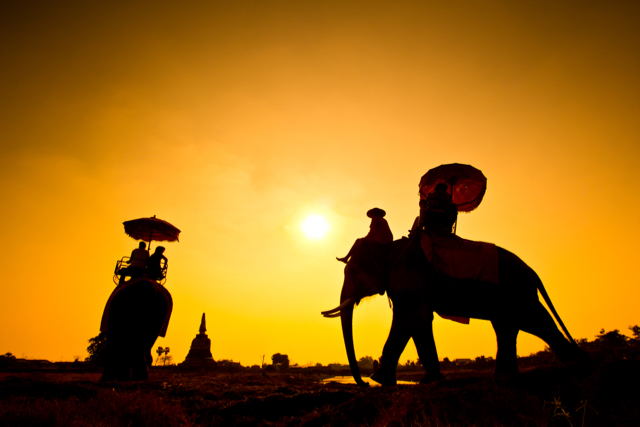Wealthy travelers have always sought out luxury, comfort, culture, and adventure, and that certainly will not stop anytime soon. But preferences for how they want to experience these things are changing, and at a rapid pace. Today’s affluent tourists are increasingly seeking more personalized experiences tailored to their individual tastes. This trend is playing out across the world, but in ways unique to different regions. Southeast Asia is no exception.
Well-heeled tourists want to experience the authentic, the unique, and the local. Travel for them, more than ever before is about a unique, personal journey. As travel becomes easier and more accessible than ever, this search has only become more urgent. Travelers want one-of-a-kind experiences. They want unique accommodations and activities that their own friends and family have never experienced, and they want to return home to share these amazing stories.
The ASEAN Region’s tourism and hospitality industry has always warmed up quickly to travel trends, but adopts them in ways unique to each country’s culture. Entrepreneurs and investors in the region often take a cautious approach rather than simply throwing money at the “next big thing”. One of the year’s hottest trends in travel, pop-up hotels, has yet to arrive on Southeast Asian shores. These luxurious yet mobile hotel rooms are all the rage, as they constantly change depending on their environment. One month a room might be at the famous Glastonbury Music Festival, the next, situated in a quaint village in the English countryside.
While big-time investors have yet to dive into pop-up hotels, Southeast Asia’s other entrepreneurs have quickly embraced another new trend in the hospitality industry. Airbnb has quickly become the most dramatic example of the changes technology has brought to travel. The site has totally disrupted the status quo, leaving everyone – travel agents, booking sites, and hotels – scrambling to keep up. At the same time, it has empowered nearly everybody with a home to find a place in the industry. And it has brought travelers closer than ever to the truly local level of their destination.
While many listings on Airbnb are aimed at budget tourists, others are real luxury accommodations. On offer are penthouse suites in Bangkok and Singapore, Seaside villas in Bali, mountain retreats in Vietnam’s Highlands, and colonial-era apartments in Malaysia. Luxury travelers are increasingly turning to these private residences over upscale hotels, a part of the greater pattern of going local during one’s travels.
The turn to more local travel has affected the cruise industry as well. While a cruise ship is, by definition, a “touristy” thing to do, wealthy travelers are increasingly embracing a very low-key version – riverboat cruises. Where ocean-going vessels are huge, full of people, and far from any local life, riverboats are small, discreet, and typically offer a unique, up close view of life on the river.
This trend bodes particularly well for the ASEAN Region. Luxury river cruises are already popular in Thailand and Vietnam, and are growing fast in Myanmar, Laos, and Cambodia (see our recent post about luxury river cruises in Myanmar). Southeast Asia’s rivers – the Mekong, the Chaophraya, the Irrawaddy – have always been the lifeblood of the region, and life along the banks is often still lived much as it has always been. River cruise boats often carry less than 100 passengers, and create a sense of colonial-era opulence combined with an up-close and intimate view of this local way of life.
Wealthy travelers today still want luxury, comfort, and relaxation, but more than ever before, they want to find it in unique ways. The more local the experience is, and the more grounded in the actual place and culture it is, the better. Southeast Asian tourism and hospitality is responding to this new trend in its own way, yet the major players are often slow to adapt. Technology is empowering anyone with an internet connection to advertise their business, and even offer their home to tourists. The industry has surely taken notice, and the ones who move fast to offer a more personal journey to luxury travelers will reap the rewards.


